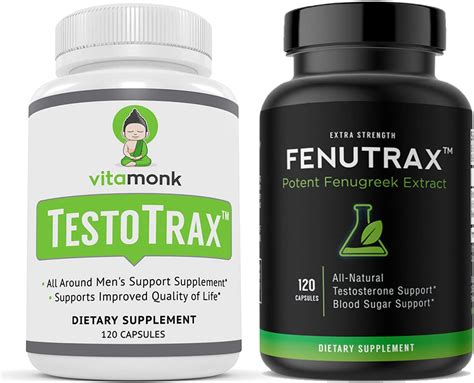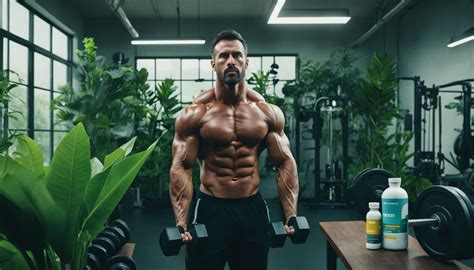The Foundation of Male Vitality: Understanding Testosterone
Testosterone, often hailed as the king of male hormones, plays a pivotal role far beyond just sex drive. It’s the primary driver of muscle growth, bone density, red blood cell production, mood regulation, and cognitive function. For men aiming to build a more muscular physique, maintain energy levels, and achieve peak mental and physical performance, optimizing testosterone naturally is a critical endeavor.
While synthetic options exist, a holistic, natural approach to testosterone optimization offers sustainable benefits without the potential side effects associated with artificial hormone replacement. This guide will delve into actionable strategies to naturally elevate your testosterone levels.

Dietary Cornerstones for Testosterone Production
Your diet is a powerful tool for hormonal health. What you eat directly impacts your body’s ability to produce testosterone. Focus on a balanced intake of macronutrients and essential micronutrients:
- Healthy Fats: Cholesterol is the precursor to testosterone. Incorporate monounsaturated and saturated fats from sources like avocados, nuts, olive oil, fatty fish, and grass-fed red meat. Avoid trans fats entirely.
- Quality Protein: Adequate protein intake is crucial for muscle repair and growth, which indirectly supports testosterone. Opt for lean meats, poultry, eggs, dairy, and plant-based proteins.
- Complex Carbohydrates: Carbs fuel your workouts and help manage cortisol (a stress hormone that can suppress testosterone). Choose whole grains, fruits, and vegetables over refined sugars.
- Key Micronutrients:
- Zinc: Found in oysters, red meat, pumpkin seeds, and beans. Zinc is vital for testosterone synthesis.
- Vitamin D: Often called the ‘sunshine vitamin,’ it’s more like a hormone. Low Vitamin D levels are linked to lower testosterone. Get regular sun exposure or supplement.
- Magnesium: Abundant in leafy greens, nuts, seeds, and dark chocolate. Magnesium helps optimize free testosterone levels.
Strategic Exercise for Hormonal Gains
Not all exercise is created equal when it comes to boosting testosterone. The most effective forms stimulate significant hormonal responses:
- Strength Training: Compound movements like squats, deadlifts, bench presses, and overhead presses engage large muscle groups and are potent testosterone boosters. Aim for heavy lifts with proper form, focusing on progressive overload.
- High-Intensity Interval Training (HIIT): Short bursts of intense exercise followed by brief recovery periods have been shown to elevate testosterone levels significantly. Sprinting, cycling, or rowing are excellent HIIT options.
- Avoid Overtraining: While intense exercise is beneficial, excessive training without adequate recovery can lead to elevated cortisol and depressed testosterone. Listen to your body and prioritize rest.

The Unsung Hero: Quality Sleep
Sleep is where your body repairs and regenerates, including hormone production. Chronic sleep deprivation is a major culprit in low testosterone. Aim for 7-9 hours of high-quality sleep per night. Strategies to improve sleep include:
- Maintaining a consistent sleep schedule.
- Creating a dark, cool, and quiet sleep environment.
- Avoiding screens and caffeine before bed.
Stress Management: Taming Cortisol’s Impact
When you’re stressed, your body produces cortisol. While essential for fight-or-flight responses, chronically elevated cortisol can directly suppress testosterone production. Effective stress management techniques are crucial:
- Meditation and mindfulness.
- Yoga or other calming physical activities.
- Spending time in nature.
- Hobbies and social connections.
- Deep breathing exercises.

Lifestyle Factors and Environmental Considerations
- Limit Alcohol Consumption: Excessive alcohol intake can impair testosterone production and increase its conversion to estrogen.
- Avoid Endocrine Disruptors: Chemicals found in plastics (BPA), pesticides, and certain personal care products can mimic hormones and disrupt endocrine function. Choose natural, organic products where possible.
- Maintain a Healthy Body Weight: Being overweight or obese, especially with excess belly fat, is strongly associated with lower testosterone levels. Fat cells contain an enzyme (aromatase) that converts testosterone into estrogen.
Natural Supplements: A Supporting Role
While lifestyle changes are paramount, certain natural supplements can offer additional support:
- Ashwagandha: An adaptogenic herb shown to reduce cortisol and increase testosterone.
- Fenugreek: Some studies suggest it can improve free and total testosterone levels.
- D-Aspartic Acid: An amino acid that may play a role in testosterone synthesis.
Always consult with a healthcare professional before starting any new supplement regimen.

Conclusion: A Holistic Path to Peak Performance
Optimizing testosterone naturally for muscle growth and peak male performance is not about quick fixes; it’s about embracing a holistic lifestyle. By consistently focusing on a nutrient-dense diet, strategic exercise, sufficient quality sleep, and effective stress management, you can create an environment where your body thrives and naturally produces optimal levels of this vital hormone. The reward is not just increased muscle and performance, but also enhanced mood, energy, and overall quality of life.





